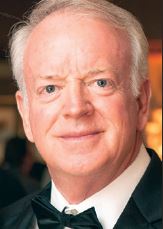Well, at the writing of this article things are looking much better than over the last two months, as many states are “opening up” and the Covid-19 statistics are not changing dramatically. It appears the worst of the pandemic is behind us.
We’ve survived a lot. We’ve survived weeks of full quarantine. We’ve survived negative oil prices. We’ve survived home schooling kids. We’ve narrowly escaped the U.S. oil storage capacity being completely filled.
One way we averted the capacity issue is because the U.S. shale industry slammed on the brakes with both feet. Many wells were shut in, the rig count has dropped to historic lows, and the large majority of the frac fleets have been idled.
Now with more people driving and flying, we’re beginning to see greater consumption of gasoline and jet fuel. We always said the only way to overcome this double whammy impact on oil prices was to have a healthy world and healthy country working, shopping, and moving about as they did before. We are now seeing the “green shoots” of recovery. The stock market has recovered significantly and, while oil prices in the low $30s is not good, it’s much better than prices in the low teens.
As we celebrate the 4th of July, we are reminded of how great it is to be an American. We live in an amazing country. We are a major producer of farm products, we’re the number one producer of beef in the world, and we’ve recently become the number one producer of crude oil in the world. This feat was achieved through good ole American ingenuity. The application of horizontal drilling and multistage fracing, when applied to shale formations, has allowed us to grow our production from 6.5 million bopd in 2010 to 13.1 million bopd in 2020. This great success has helped contribute to the economic condition we are now enduring. Because U.S. production had grown so dramatically, Russia and Saudi could not come to an agreement when production cuts were needed. With the price war beginning, we then saw extreme demand destruction through the pandemic lockdown. This drove prices into negative territory. With this severe downturn U.S. production has dropped 1.7 million bopd—from 13.1 million bopd to 11.4 million bopd. We have now fallen from the number one producer position.
During this global pandemic we’ve come to realize, as a country, that it is not good to allow so many of the products that we depend on to be manufactured in foreign countries. This was especially true with PPE’s and pharmaceuticals. Most protective masks were manufactured in China and it was discovered that China had begun hoarding these masks as the pandemic began to grow. U.S. manufacturers are now supplying all of the masks we need. We also found that ventilators were in short supply and in a matter of weeks GM and Ford threw their effort into producing these, and now we are able to supply the world in ventilators. It has proven very important that in the United States we do not rely on foreign countries for our food supply. American farmers and ranchers have done an outstanding job of meeting our needs. I believe the same can be said for the domestic oil and gas industry. For decades the United States had been a net importer of oil to meet our energy needs. But in 2019, we became a net exporter of oil. We became energy self-sufficient, producing more oil than we consume as a country. It is true that this growth came at an oil price greater than $50 per barrel. American crude is more expensive to find, develop, and produce than much foreign crude. But I feel it is well worth it. I’m willing to pay more for American products that help keep our country secure and self-sufficient. I’m willing to pay more at the gas pump, at the grocery store, and at the pharmacy, in order to provide for American jobs and a stronger country. I would suggest that all American refineries be equipped to process American crude oil and stop processing cheap “dumped on the market” foreign crude. In short, I’m a strong supporter of “Buy American” and I hope you will be as well.
______________________________________________________________________________________________________
From the Chairman,
Kyle McGraw – PBPA Chairman of the Board










